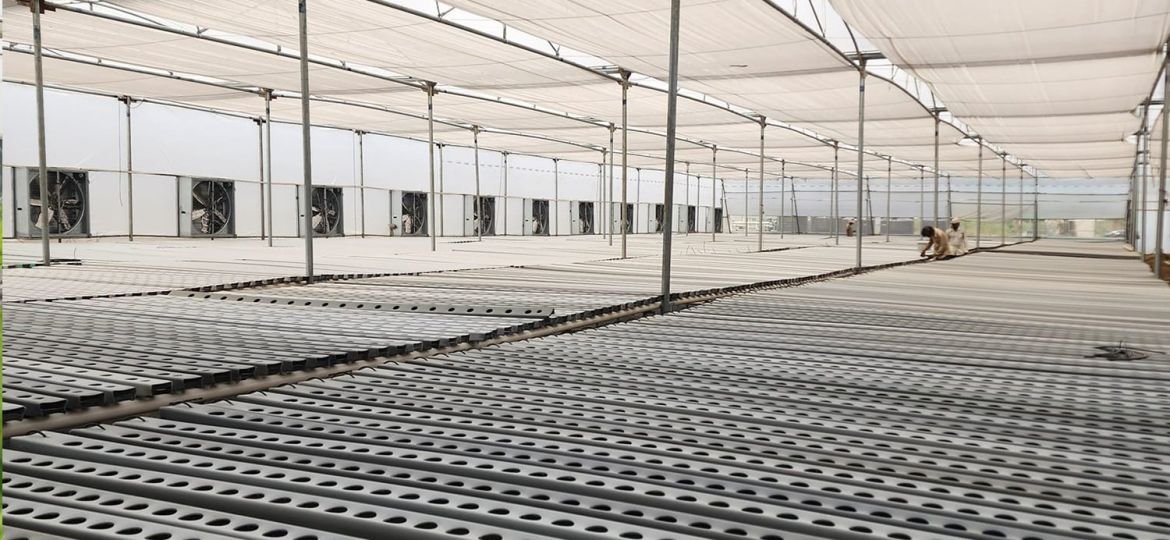
In hydroponics, where plants thrive without soil, selecting the right materials for system components is crucial for a safe, efficient, and long-lasting setup. Nutrient Film Technique (NFT) systems rely on high-quality, food-safe plastics to deliver nutrient solutions to plant roots effectively. At INHYDRO, we prioritize using FDA-approved food-safe plastics to ensure a safe environment for plant growth and system durability. This blog covers the essential plastic classifications for NFT channels, the importance of using food-safe materials, and a guide to materials that should be avoided.
Why Choose FDA-Approved Food-Safe Plastics for NFT Channels?
The FDA classifies plastics for food safety based on their chemical stability, durability, and resistance to leaching. In hydroponics, food-safe plastics prevent contamination of nutrient solutions, ensuring both plant health and consumer safety. Here’s a breakdown of safe and effective plastics for NFT channels.
Key Food-Safe Plastic Classifications
| Code | Plastic Type | Common Uses | FDA Food-Safe Status | Suitability for NFT Channels |
|---|---|---|---|---|
| 1 | Polyethylene Terephthalate (PET) | Beverage bottles, food containers | Yes | Suitable for limited applications, but less common in NFT channels |
| 2 | High-Density Polyethylene (HDPE) | Milk jugs, piping, food-safe containers | Yes | Highly suitable; durable, safe, and UV-resistant |
| 3 | Polyvinyl Chloride (PVC) | Plumbing pipes, flooring | No | Not recommended due to potential leaching |
| 4 | Low-Density Polyethylene (LDPE) | Plastic bags, flexible tubing | Yes | Suitable; flexible, safe, and ideal for system tubing |
| 5 | Polypropylene (PP) | Food containers, automotive parts | Yes | Ideal for NFT channels; durable and non-reactive |
| 6 | Polystyrene (PS) | Disposable cutlery, foam products | No | Not suitable; potential chemical leaching |
| 7 | Other (various plastics) | Mixed materials, bioplastics | Varies | Avoid; uncertain properties and potential health risks |
Safe Choices for NFT Channels in Hydroponics
High-Density Polyethylene (HDPE) – Code 2
- FDA Food-Safe Certified: HDPE is highly stable and resistant to chemical reactions, making it safe for food and nutrient solutions.
- Durable and UV Resistant: HDPE withstands sunlight exposure, ensuring NFT channels last longer in outdoor settings.
- Non-Leaching: HDPE does not release harmful chemicals, maintaining nutrient purity. It is also easy to clean and resistant to algae buildup.
Polypropylene (PP) – Code 5
- Strong and Chemically Stable: PP is durable, thermally stable, and approved for direct food contact, making it a reliable choice for NFT channels.
- Non-Porous Surface: This feature helps prevent algae buildup, maintaining an efficient flow of nutrient solutions.
- Recyclable: PP is an eco-friendly material that aligns with sustainable farming practices.
Low-Density Polyethylene (LDPE) – Code 4
- Flexible and FDA-Approved: LDPE is versatile and often used in tubing and flexible components of hydroponic systems.
- Non-Leaching and Safe for Nutrient Solutions: It maintains nutrient purity and allows easy adaptation to various hydroponic designs.
Plastics to Avoid in Hydroponics
Polyvinyl Chloride (PVC) – Code 3
PVC is commonly used in construction but is not recommended for food contact due to the release of vinyl chloride and phthalates, which can contaminate nutrient solutions:- Toxic Additives: PVC often includes additives that can leach into water, affecting plant health.
- Potential Degradation: UV exposure can cause PVC to break down, releasing harmful chemicals.
Polystyrene (PS) – Code 6
Polystyrene, often used in disposable food packaging, is not suitable for NFT channels:- Styrene Leaching: This material can release styrene, which is potentially toxic to plants and consumers.
- Weak Structure: Polystyrene is prone to cracking and lacks the durability needed for NFT systems.
Polycarbonate (PC) – Code 7
Polycarbonate is strong and clear but should be avoided due to the potential release of Bisphenol A (BPA), a chemical that can harm human health:- BPA Leaching: BPA contamination poses health risks, especially in a closed hydroponic system.
- FDA Restrictions: Polycarbonate is not approved for direct food contact, making it an unsuitable choice for NFT channels.
Why INHYDRO’s NFT Channels Stand Out
At INHYDRO, we prioritize plant safety and system performance by using FDA-approved HDPE and PP plastics in our NFT channels. Our channels meet strict FDA standards to provide a durable, efficient, and eco-friendly solution. By using food-safe materials, we ensure that plants and consumers are protected from contaminants, contributing to a safer and more productive hydroponic environment.
For more information on hydroponic systems and the materials we use, visit INHYDRO’s website. Choose INHYDRO for a hydroponic setup that prioritizes food safety, sustainability, and efficiency.

